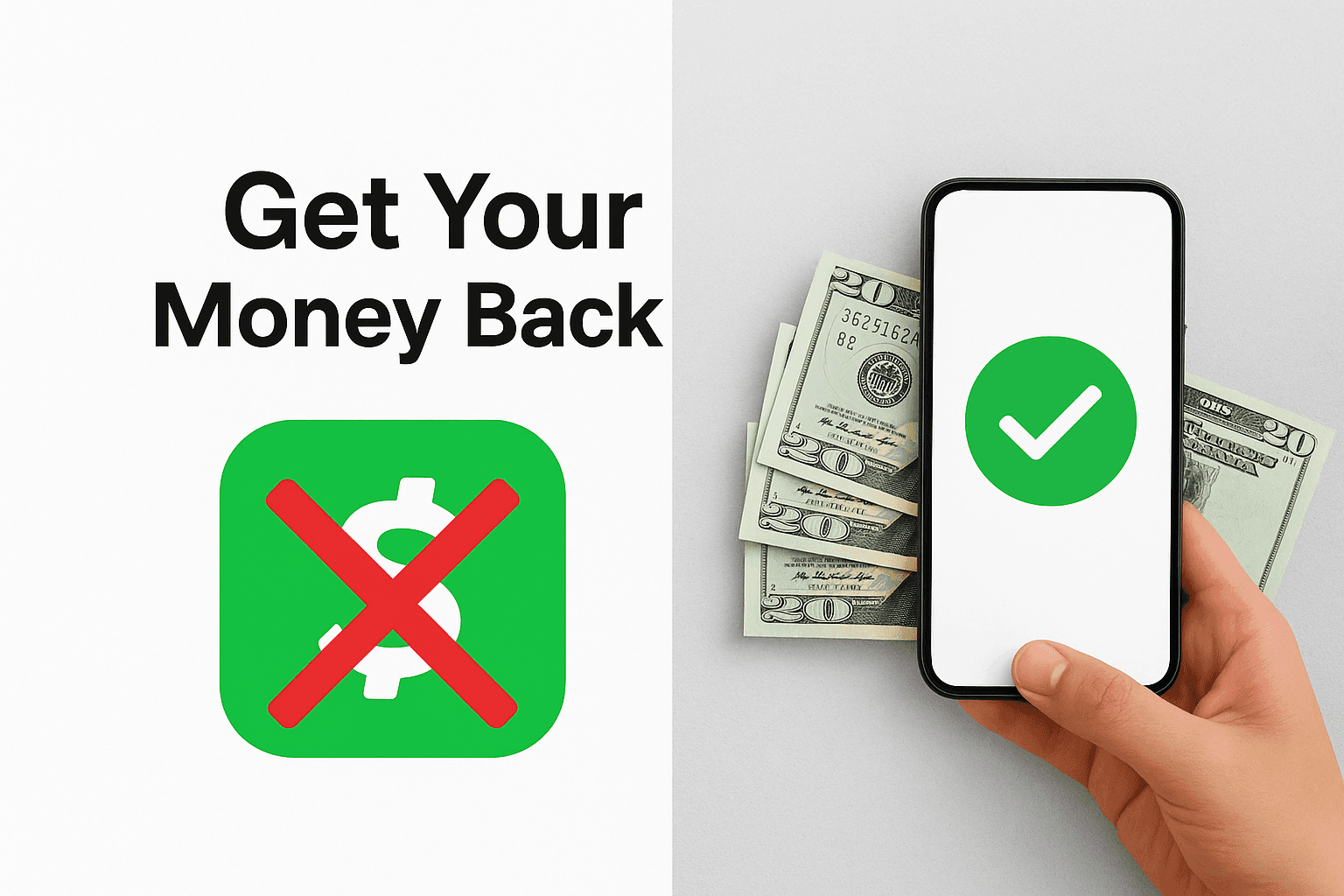Cash App Refund If Scammed: Fast Recovery Guide (2025)
Cash App Refund If Scammed: Fast Recovery Guide (2025)
Getting scammed on Cash App feels terrible, but a refund is possible in specific situations. Cash App's protection policies cover unauthorized transactions but rarely cover scams where you voluntarily sent money.
Cash App will refund you if your account was hacked or charged without permission, but NOT if you authorized the payment yourself—even to a scammer.
- Unauthorized transactions qualify for refunds within 60 days
- Authorized payments to scammers are almost never refunded
- Disputes filed within 15 days have the highest success rate
- Your bank may reverse the transfer if you act within 24-48 hours
How Cash App Scam Refunds Actually Work
Cash App operates like sending physical cash—once you authorize a payment, it's gone. The platform distinguishes between unauthorized transactions (someone hacked your account) and authorized scams (you sent money to a fake seller or romance scammer).
Unauthorized charges qualify for Cash App's protection guarantee. If someone accessed your account without permission and sent payments, you can dispute these within 60 days. Cash App investigates and typically refunds confirmed unauthorized activity within 10 business days.
Authorized scams are different. If you sent money for concert tickets that never arrived or paid a fake landlord, Cash App considers this a "peer-to-peer payment" and denies refunds. Their terms state you're responsible for ensuring the recipient is legitimate before sending money.
How to File a Cash App Scam Dispute in 3 Steps
- Open Cash App, tap the Activity tab, and select the suspicious transaction immediately.
- Tap the three dots in the top-right corner, select "Need Help & Cash App Support," then choose "Dispute This Transaction."
- Select the reason (choose "Unauthorized Transaction" if your account was hacked, or "Services/Goods Not Received" for seller scams), provide details, and submit within 15 days for best results.
- Screenshot everything: the transaction, your conversation with the scammer, and any evidence (fake tracking numbers, deleted profiles).
- Contact your bank or card issuer within 24 hours if you funded the Cash App payment with a debit/credit card—they may reverse the charge even if Cash App won't.
- File a report with the FTC at ReportFraud.ftc.gov and your local police if the amount exceeds $500—this creates a paper trail for potential legal action.
What to Do When Cash App Denies Your Refund
Cash App rejects most scam disputes for authorized payments, but you have options. Contact your bank immediately and request a chargeback under "services not rendered" or "fraud." Banks have 60-120 days to investigate, and they often side with customers over payment apps.
If both Cash App and your bank deny the claim, the scammer's identity and location can still be traced through blockchain analysis and digital forensics. Professional recovery services like Rankedsafe.com specialize in tracking scammers across platforms and can provide evidence for law enforcement or civil claims.
Document everything for small claims court if the amount is under your state's limit (typically $5,000-$10,000). Scammers often use real bank accounts tied to their identity, making them legally liable even if Cash App won't help.
Quick FAQ
Will Cash App refund me if the seller never sent my item?
Probably not. Cash App doesn't offer buyer protection like PayPal Goods & Services. If you sent money to someone for a product and they disappeared, Cash App considers it a peer-to-peer payment and denies refunds. Your best chance is disputing the charge with your bank within 60 days.
How long does a Cash App dispute take?
Cash App investigates disputes within 10 business days for unauthorized transactions. For authorized scam claims, they often respond within 3-5 days with a denial. If they approve your dispute, refunds appear in your Cash App balance immediately and take 1-3 business days to transfer to your bank.
Can I get scammed through Cash App if someone requests money?
No, payment requests can't steal your money. You must manually approve and send the payment. However, scammers use fake "urgent" requests pretending to be Cash App support or claiming you owe money. Never send money to requests from strangers or unverified accounts.
What if I sent money to a scammer using Bitcoin on Cash App?
Bitcoin transactions are irreversible and Cash App cannot refund cryptocurrency payments. Once Bitcoin leaves your wallet, it's permanently gone. Report the scam to Cash App and law enforcement, but recovery is nearly impossible without professional blockchain tracing services.
Does Cash App ban scammers permanently?
Yes, Cash App closes accounts involved in scams, but scammers create new accounts immediately using fake information. Reporting the scammer helps protect others, but it won't recover your money. Focus on disputing the transaction and contacting your bank instead.
Protect Yourself From Future Cash App Scams
Enable security features immediately: turn on Face ID or PIN, enable notifications for every transaction, and never share your sign-in code. Only send money to people you know in real life, and verify their identity before large payments.
Avoid common scams: Cash App will never ask you to send money to "verify your account" or "claim a prize." Customer support never contacts you first requesting payments. If someone claims they sent you money by mistake and asks you to return it, it's a scam using stolen cards.
Bottom line: Cash App refunds unauthorized account breaches but almost never refunds authorized scam payments. Your fastest path to recovery is disputing with your bank within 24-48 hours. If that fails, professional tracing services can identify scammers for legal action. Always verify recipients before sending money—Cash App transactions are final.





